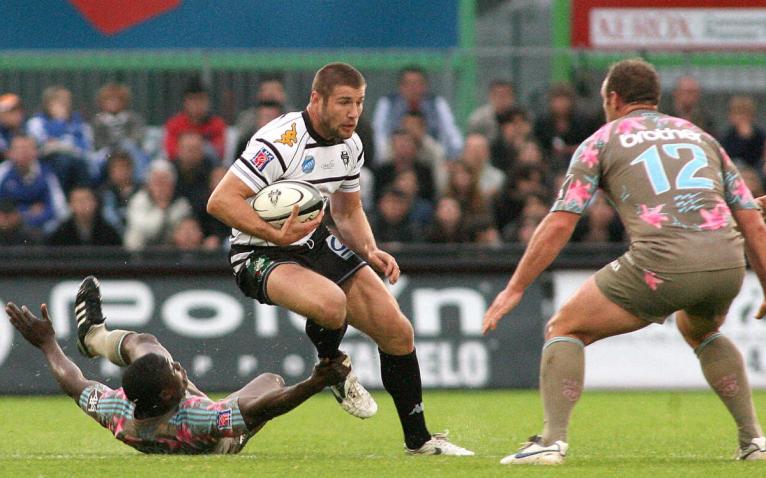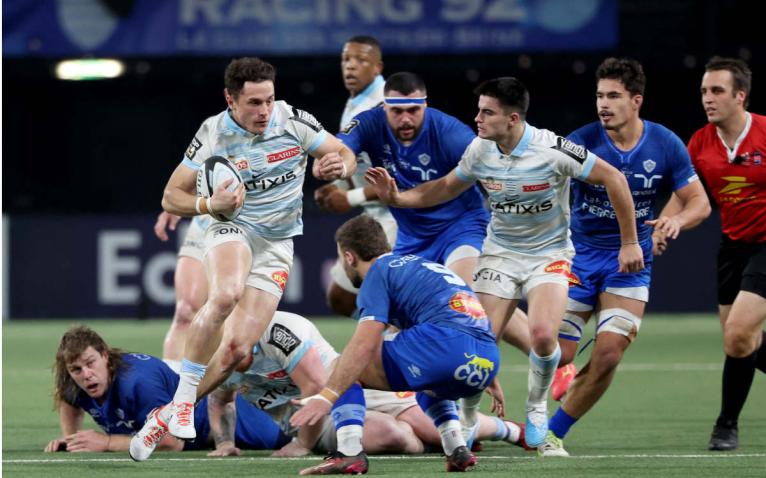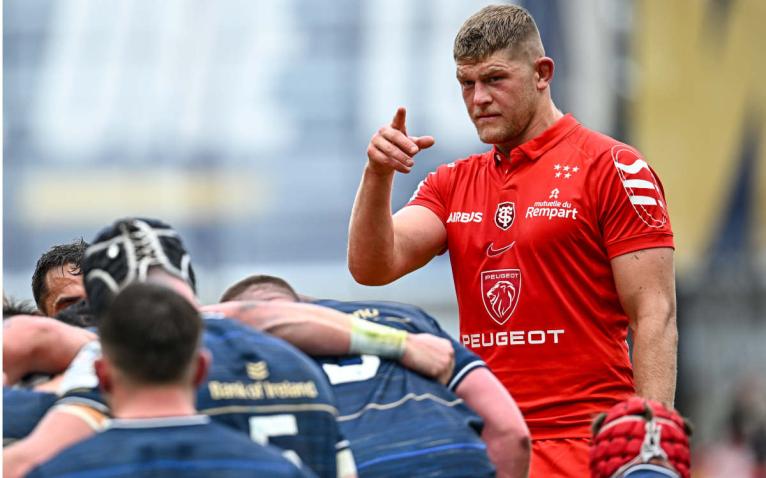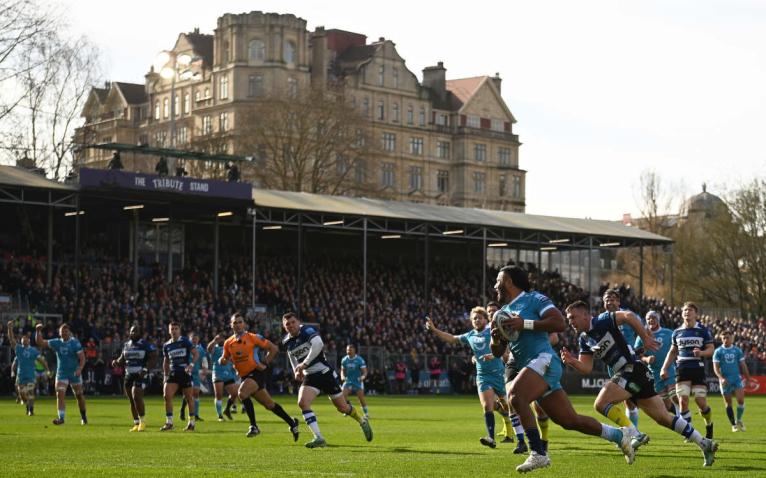It was a mistake, confessed Ben Cohen in an interview at the end of 2009. He was talking about his decision two years earlier to join Brive in the Top 14. Leicester had been courting him at the time, but instead of moving the short distance from Northampton to Welford Road, the England wing hopped over the Channel. “Looking back it was not a great idea…France was a world away from England,” said Cohen, once he had returned home to Sale Sharks.
Cohen was one of several English stars who moved to France in the latter half of the Noughties. Jonny Wilkinson and Tom May to Toulon; Tom Palmer and James Haskell to Stade Francais; Ollie Smith and Alex Codling to Montpellier, Magnus Lund and Iain Balshaw to Biarritz, and then the gang who joined Brive: Cohen, Jamie Noon, Steve Thompson, Shaun Perry, Andy Goode, Riki Flutey and Ben Johnston.
The newspaper that serves southern France, La Dépêche du Midi, ran a piece in March 2009 highlighting the number of rosbifs taking up residence in the Top 14 under the heading ‘The Fear of the English Invasion’.
The newspaper quoted Patrick Wolff, the vice-president of the LNR (Ligue nationale de rugby) the Top 14’s governing body. “We’re not at all happy about this influx of foreign players, particularly from the UK,” he said. “We can’t keep the world’s best players in one country for long, otherwise we’ll end up upsetting the balance of world rugby.”

He needn’t have worried. Most of the invaders were soon back home, their bank balances bigger if not their reputations. Some – like Ollie Smith – were unfortunate, plagued by injuries that ultimately ended their careers, but others like most of the Brive crowd, never adapted. As Cohen said France is a world away from England.
Barely 20 miles separates the two countries across the Strait of Dover but culturally it is easier for an Englishman to settle in Brisbane than it is Brive. Cohen found the attention the most unsettling. ‘The media coverage was incredible,’ he said. ‘There were countless newspapers, magazines and TV stations who wanted to know everything that was going on – it took a bit of getting used to.’
Then there was match day, so different from the genteel environment he was used to in England. ‘They get much bigger crowds over there and there just seems to be a bigger all round interest.
Fifteen years after that English ‘invasion’, there is another horde heading south. Midi Olympique devoted a page to this new invasion last week, although there was no scare-mongering about their arrival.
That depends on the club. Brive, like Castres and Clermont, is at the heart of its community. The whole town lives and breathes rugby. Join one of the two Paris clubs, however, or Lyon or Bordeaux, and you can happily walk the streets unnoticed.
Fifteen years after that English ‘invasion’, there is another horde heading south. Midi Olympique devoted a page to this new invasion last week, although there was no scare-mongering about their arrival. On the contrary the paper seemed flattered that Courtney Lawes (Brive), Owen Farrell (Racing), Kyle Sinckler and Lewis Ludlum (Toulon), Will Collier (Castres), Manu Tuilagi (Bayonne) and Billy Vunipola (Montpellier) will be plying their trade in the Top 14 next season
They join the advance party, which arrived last year, among whom are Jack Willis (Toulouse), Jack Nowell (La Rochelle), Sam Simmonds (Montpellier), Joe Marchant (Stade Francais) and Henry Arundell (Racing).

As in 2009, the motivation for many of these players is money. Fifteen years ago La Dépêche du Midi cited ‘the fall in the value of the pound and the financial difficulties faced by many English clubs’ as the driving force behind the exodus. The Premiership is in a far worse economic state now with three clubs (London Irish, Wasps and Worcester) having gone to the wall in the last eighteen months. In contrast, French clubs have never had it so good. This week the LNR invited bids from interested parties for the television rights for the Top 14 and Pro D2 for the period 2027-2031 (the first time that rights for the two championships have been marketed under the same tender procedure).
The deal between TNT and Premiership Rugby was reportedly worth £110m over three years, but this contract expires at the end of the current season and it’s reported that ‘any new broadcast deal will bring in less income than the current arrangement
The reserve price has been fixed at €130 million per season (£111m) The existing broadcaster, Canal+, currently pays €113.6 million per season for all Top 14 rights and €8 million for Pro D2. Emmanuel Eschalier, the LNR’s director general, said the reserve price was ‘‘ambitious and reasonable…we want to make progress both financially and in terms of the quality of our coverage”.
Across the Channel, the deal between TNT and Premiership Rugby was reportedly £110m over three years, but this contract expires at the end of the current season and it’s reported that ‘any new broadcast deal will bring in less income than the current arrangement’. The loss of three clubs has reduced the appeal and the competitivity of the Premiership.
One reason why there is less alarm at the number of English players arriving in France is the JIFF system. JIFF – Joueurs Issus des Filières de Formation – was introduced in 2010 as a direct result of the surge in overseas players signing for French clubs.

Initially, the new rules stipulated that for the 2010-11 season Top 14 squads must have 14 JIFFS in their squad of 35. JIFFS are players who have spent three seasons at a French club’s youth academy before turning 21 or who have been licensed to play in France for five seasons before the age of 23. This has since risen to 19 players out of 35 with at least 17 JIFFs in a matchday squad. Clubs that exceed this matchday figure receive financial rewards from the LNR.
Another significant difference between 2009 and 2024 is that an Englishman playing in France is now ineligible for his country. That’s why most of the players coming over are 30-somethings whose Test days are behind them. There are exceptions, players like Zach Henry at Stade Francais, Ali Crossdale at Perpignan and Lyon lock Joel Kpoku, who have never been in contention for senior international honours. Then there are Jack Willis and Henry Arundell, both of whom would be playing for England if they were at Premiership clubs; they were, last season, Wasps and London Irish respectively, but when those clubs went bust they took the best offers available at a time of great uncertainty.
It’s usually the Englishmen with something to prove who are most successful in France: Jonny Wilkinson, for example, who arrived at Toulon in 2009 with many people in England having written him off because of his injury problems.
Willis has been outstanding since he joined Toulouse in November 2022 and Arundell has caught the eye at Racing. After their bitter experiences in England they are highly motivated, and also grateful for the second chance offered to them in France.
It’s usually the Englishmen with something to prove who are most successful in France: Jonny Wilkinson, for example, who arrived at Toulon in 2009 with many people in England having written him off because of his injury problems. Zach Mercer moved to Montpellier in 2021 after being consistently overlooked for England selection by Eddie Jones; Nick Abendanon joined Clermont in 2014 for a similar reason.

Farrell, Vunipola, Tuilagi and all the other retired England internationals have little to prove. Been there, done that. They’re coming to France for the money not to develop as players. There’s no shame in that, it’s a professional sport and they’ve all dedicated years of their lives to the game. Good luck to them.
How they will be received by the French rugby public will depend on their attitude. If they rise to the challenge, as Wilkinson did, they’ll be revered; if they don’t, they’ll return home whining about France and England being worlds apart.


The French weren't happy about the influx of foreign players, particularly the UK. Why was the resentment towards players from ‘the UK' more pronounced?